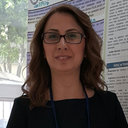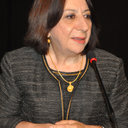Training program to raise consciousness among adolescents for protection against skin cancer through performance of skin self examination.
Anahtar kelimeler
Öz
BACKGROUND
Overexposure to sunlight in childhood and the adolescent period and associated sunburns significantly increase the risk of skin cancer in adulthood. In Turkey, the incidence of skin cancer in the general population is 0.8%. The incidence is 0.6% and the mortality rate is 0.4% for men, while these rates are 1.0% and 0.7%, respectively, for women. If skin cancer is found early, its treatment is facilitated. Therefore, personal skin examination is important for early diagnosis.
OBJECTIVE
Our aim was to determine the effects of training for raising consciousness among adolescents to protect against skin cancer by influencing skin self examination behavior.
METHODS
This quasi experimental intervention study was conducted between February and April 2012 in Izmir. The study population consisted of students attending 6th, 7th and 8th classes of a primary school (n:302). No sampling was performed. Data were collected with a form developed by the researchers based on the literature. The first part of form is aimed to determine demographic characteristics of adolescents (3 questions) and their risk status of skin cancer (6 questions). The second part was prepared for skin cancer risks of adolescents (8 questions) and indications of skin cancer (12 questions). The last part was intended to determine their knowledge about skin self examination (4 questions) and behavioral stages of skin self examination (1 question). Data collection was achieved with a questionnaire form in three phases. In the 1st phase, data about demographic characteristics of students, risk status of skin cancer, knowledge level of skin cancer and behavior stages were collected. In the 2nd phase, skin self examination training based on the transtheoretical model was performed within the same day just after obtaining preliminary data. In the 3rd phase, adolescents were followed up three times to establish the efficacy of the training (on the 15th day after training program and at end of the 1st and 2nd months). Follow-up data were evaluated by questioning skin self examination performing behavior stages through electronic mail.
RESULTS
Half of the adolescents (50.5%) are male, and 58.4% of them are 13 years old with a mean age of 12 ± 1.15 years. About 29.4% of adolescents had brown hair color, 37.9% had brown/ hazel eye color, 29.4% had white skin, and 47.2% had fewer than 10 moles in their body. The pretest mean score on knowledge level about risks of skin cancer was found to be 4.19 ± 1.96, while the post-test mean score was 6.79 ± 1.67 (min:0, max:8).The pretest mean score about indications of skin cancer was 7.45 ± 3.76, while the post-test mean score was 10.7 ± 2.60 (min:0, max:12). The increases were statistically significant (p<0.05). The behavior "I do not perform skin self examination regularly in every month and I do not think to perform it in the next 6 months" was reduced from 52.8 to 35.5% after training.
CONCLUSIONS
The training program organized to raise consciousness among adolescents for protection against skin cancer increased the knowledge level about risks and indications of skin cancer and it also improved the behavior of performing skin self examination.




